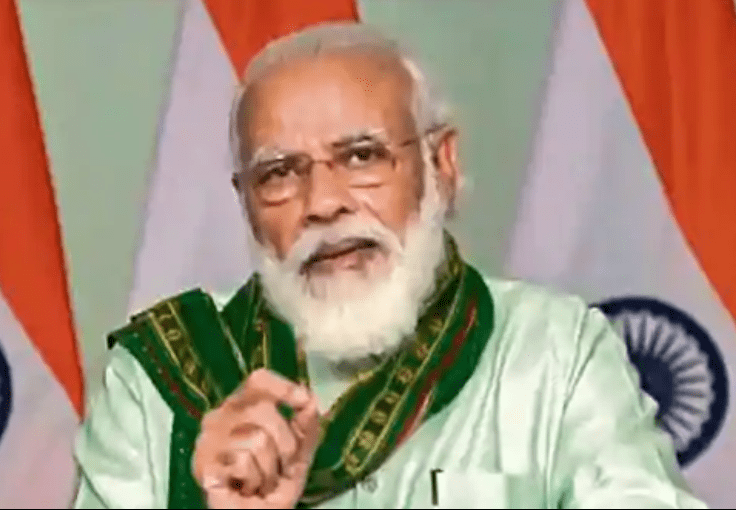
PM pitches for self-reliant India; no mention of $5 trillion economy this year
When needs change, priorities change, Prime Minister Narendra Modi said in his address to mark the 74th Independence Day on Saturday.

When needs change, priorities change, Prime Minister Narendra Modi said in his address to mark the 74th Independence Day on Saturday (August 15).
Although he used the phrase while talking about providing broadband connectivity to villages, it holds true about his customary speech from the ramparts of the Red Fort.
So, when India and the whole world is battling COVID-19, there was no mention of a $5 trillion economy. Instead, the pitch was on self-reliance, getting ‘vocal for local’, health and on giving a push to infrastructure to haul up the economy, put in intensive care by the coronavirus, with a special mention reserved for the middle-class that is key to the revival.
If he was addressing the aspirations of India last year, this time it was more about reassuring people despairing not just because of the pandemic but also due to natural disasters such as floods and landslides.
Then, to assuage fears over threats at India’s borders, there was the evocation of India’s freedom struggle, which he said proved to be an inspiration for those who fought and defeated expansionist forces in World War I and World War II. From LoC to the LAC, Indian forces have responded to enemy actions “in their own language”, he said in an obvious reference to Chinese incursions in Galwan.
A big chunk of his about 90-minute speech was dedicated to atmanirbharata (self-reliance). It is imperative that India paid attention to value additions instead of just relying on “exporting raw materials and importing finished goods”, he said. He perhaps had the uninspiring results of the ‘Made in India’ push at the back of his mind when he said he is aware that the path to an ‘atmanirbhar Bharat’ is riddled with challenges, but that those can be overcome.
The overarching theme of his speech was a departure from his focus on social welfare and ‘ease of living’ in the past. There was no harping about the lakhs and crore of people who have benefitted from LPG gas and electricity connections, the Jan Dhan and health insurance schemes or too much dwelling on schemes meant for farmers, although there was brief mention of the recent agriculture reforms.
The only notable figure he bandied about was the number of panchayats that will be covered under the National Optical Fibre Network (NOFN) programme to provide broadband connectivity. The COVID pandemic has underlined the digital way of life, he said, adding the government will extend the NOFN scheme to about 6 lakh village panchayats against the 1.5 lakh targeted earlier. This is when he said, “When needs change, priorities, too, change.”
The common strings that he carried over from his last year’s address were the Jal Jeevan Mission and abrogation of Article 370. Over 2 crore families, some even in adivasi settlements in jungles, have been given piped water connection since the scheme was launched last year, he said.
He said every village in the Union Territory of Jammu and Kashmir is now experiencing ‘vikas’ (development) ever since Article 370 was scrapped a year ago. The government plans to hold local elections once the delimitation exercise, which is underway, is over.

